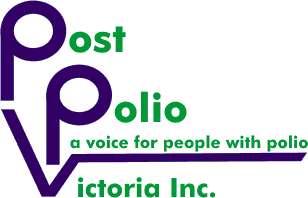The Australian Disability Rights Movement Lives
Margaret Cooper OAM
1999
Disability & Society, Vol. 14, No. 2, 1999, pp. 217-226
The Australian Disability Rights Movement is surviving despite funding threats to advocacy programmes. The integral relationship of advocacy funding to the Australian Disability Rights Movement is outlined. A brief history of the Australian Disability Rights’ Movement is given, and whether this is a new social movement, or not, is discussed. The role of Women With Disabilities Australia is outlined.
The Experience of Ageing for People with Physical Impairments – with particular reference to polio survivors
Margaret Cooper OAM
2012
A 2012 study explored the life experiences of a group using a qualitative approach. In depth interviews were conducted with 10 Victorians, aged between 51 and 84 years, who had lived with polio related or other impairments for at least 40 years. An inductive thematic analysis was undertaken. A relationship was found between the adaptive strategies which participants developed, as they moved through life phases and impairment stages.The implications of the emergence of a cyclical process of adaptation across the life course and particularly in respect of aging, delivery of aged care services and social workers in this sector are discussed.
What is happening to patients who have had polio? The role of the patient in assessment and management
Margaret Cooper OAM
2016
Patients who have had polio in the past can present as a challenge to clinical assessment. The majority of these patients are older than 60 years of age and may report a range of symptoms that relate to impairment progression in the form of postpolio syndrome but could also be secondary health conditions, agerelated concerns or an unrelated health matter. Factors involved in the management of patients who have had polio include careful diagnosis, recognition of adaptive strategies and enhancement of the patient’s selfcare skills.
